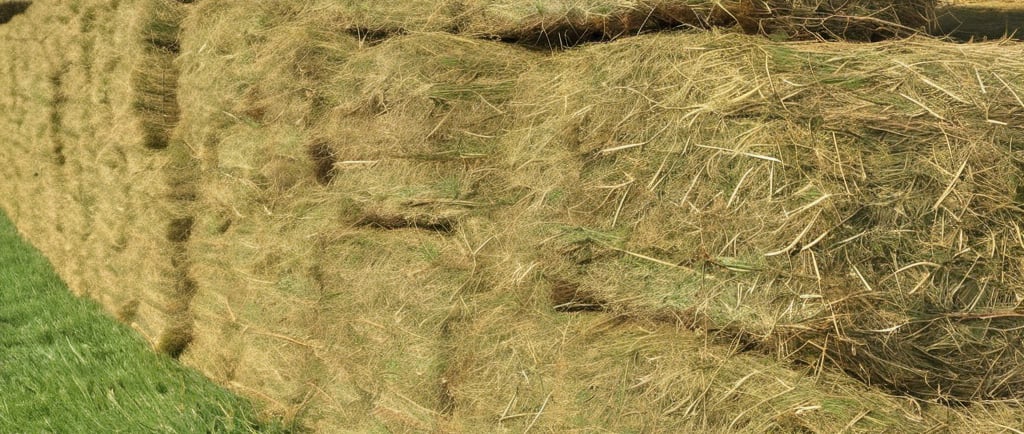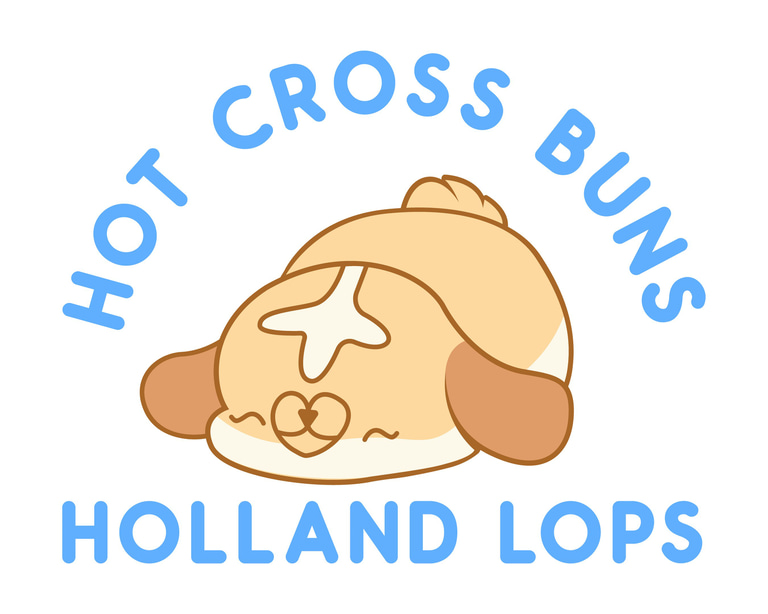Why Hay Is More Important Than Pellets
Hay isn’t just a snack—it’s the cornerstone of your rabbit’s health. Learn why unlimited hay is far more important than pellets for good digestion, healthy teeth, and natural bunny behavior.
AMy J.
10/14/20252 min read


Why Hay Is More Important Than Pellets
When most new rabbit owners set up for their first bunny, they often start with a cage, a water bowl, a food dish—and a big bag of pellets. Pellets are easy, convenient, and marketed as “complete nutrition.” However, there’s the truth every rabbit owner should know: hay, not pellets, is the foundation of a healthy rabbit diet.
1. Hay Keeps Their Digestive System Moving
A rabbit’s digestive tract is designed for a constant flow of high-fiber food. Hay provides that essential roughage, helping food move steadily through their system and preventing life-threatening blockages like GI stasis. Pellets, by comparison, are concentrated and low in long-strand fiber, which means they can’t keep things moving properly on their own.
2. Hay Keeps Teeth in Check
Rabbit teeth grow continuously throughout their lives. Chewing hay wears them down naturally, keeping them even and preventing painful dental problems like spurs or abscesses. Pellets don’t offer the same chewing resistance—so rabbits that rely heavily on pellets often develop overgrown teeth that require veterinary intervention.
3. Hay Supports Natural Behavior
In the wild, rabbits spend hours grazing and foraging. Providing unlimited hay satisfies that instinct by keeping them mentally engaged, reducing boredom and destructive behavior, and mimicking the natural rhythm of eating small amounts all day long.
4. Pellets Should Be the Side Dish, Not the Main Course
Pellets have their place—but only in moderation. A small daily portion (usually 1–2 tablespoons per pound of body weight for adult rabbits) can ensure they get a balanced boost of vitamins and minerals. However, too many pellets can lead to obesity, soft stools, picky eating habits, and even dental disease.
5. Quality Matters
Not all hay is created equal. Choose fresh, fragrant hay—timothy, orchard grass, or a mix—for adult rabbits. Young, growing rabbits and nursing does may benefit from some alfalfa hay, but it’s too rich in calcium and protein for adults. Always offer hay that’s dry, mold-free, and stored in a cool, well-ventilated place.
6. Simple Rule of Thumb
If you take nothing else from this post, remember this:
Pellets are a supplement. Hay is a necessity.
A rabbit that eats plenty of hay is on the path to a long, healthy, and happy life.
